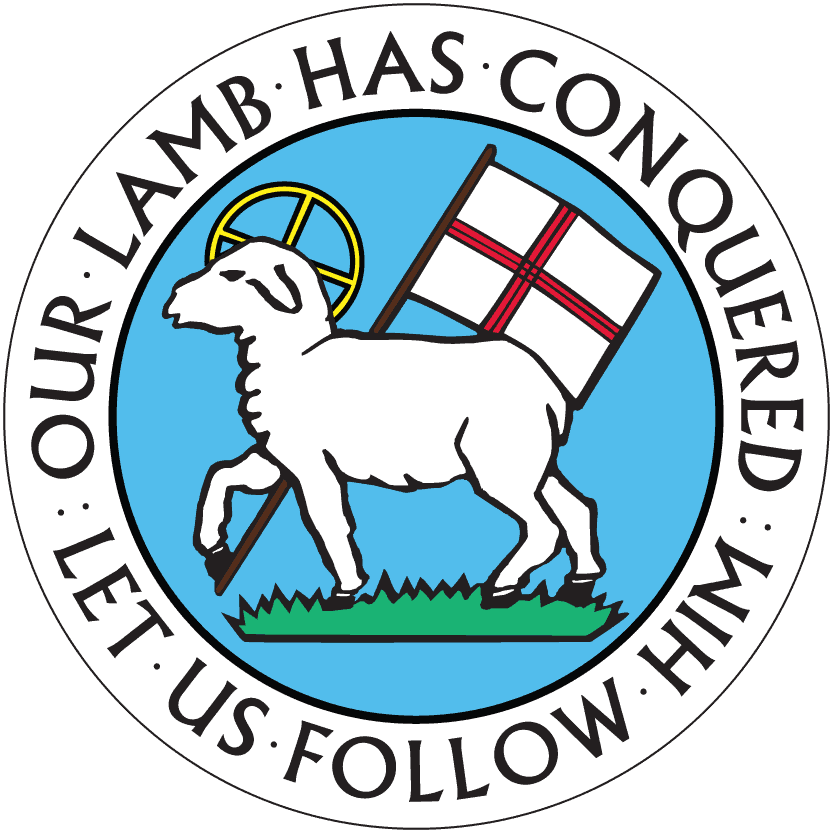
Christ, and him crucified,
remain our confession of faith.
The Moravian Church in North America is part of a worldwide Protestant denomination serving Jesus Christ since 1457. The Moravian Church continues a long-standing heritage of Christian faith, mission outreach, service to the community and the world, ecumenical cooperation, and rich musical worship. Grateful for its heritage and firm in its faith, the Moravian Church ministers to the needs of people wherever they are.
Moravians recognize the example of Christ’s life and proclaim that Jesus Christ is Lord. Living the Christian life depends not only on our own effort but upon God, who in Jesus Christ accepts us as heirs of God, and who strengthens and sustains us through the Holy Spirit. In baptism we are united with Christ in his death, so we have died to sin and should walk in newness of life.
We realize that our Christian faith must continually be nourished if it is to remain living and vital. We desire to grow in our Christian lives through personal prayer and study, family devotions, and the opportunities for spiritual development offered by the Church.
We deem it a sacred responsibility and genuine opportunity to be faithful stewards of all God has entrusted to us: our time, our talents, and our financial resources. We view all of life, including the earth, as a sacred trust to be used wisely.
Realizing that God has called us from many and varied backgrounds, we recognize the possibility of disagreements or differences. Often these differences enrich the Church, but sometimes they divide. We consider it to be our responsibility to demonstrate within the congregational life the unity and togetherness created by God who made us one.
Moravians have a fellowship with children of God in other Christian churches and recognize that through the grace of Christ, different denominations have received many gifts and that the Church of Christ may be enriched by these many and varied contributions. We welcome each step that brings us nearer to the goal of unity in Christ. In this fellowship we cooperate with other churches in the support of local and global outreach.
The Moravian Church recognizes the sacraments of Baptism and Holy Communion.
The Moravian Church’s official motto is: “Our Lamb has conquered. Let us follow Him.”
In addition, Moravians are guided by this principle: “In essentials, unity. In non-essentials, liberty. In all things, love.”
Today’s Moravian Church strives to live the “essentials” of a Christian life: God creates, God redeems, and God sustains. We respond to God’s actions with faith, love and hope.
Moravian Christians…
- Believe in one Triune God: Creator, Son, and Holy Spirit.
- Believe that Jesus Christ is the way to God and God’s way to us.
- Believe that a personal, heart-felt relationship with God through Jesus Christ is an essential part of faith.
- Hold that faith in Jesus Christ must also be a community experience.
- Believe the Church is called into existence by Jesus Christ to serve him and follow him.
- Find guidance for doctrine and faith through the Bible.
- Subscribe to the major creeds of the Church, including the Apostles’ and Nicene Creeds.
- Share God’s love in word and deed with all people around the world.
- Have a rich heritage of creativity in our music and worship.
- Believe that discerning God’s will is a task to be shared among many leaders rather than vested in a single person or office. Thus, there is a conferential form of government that shares this responsibility.
- Place great value on their ties with Christians of other denominations and people of other faiths throughout the world.
The Moravian Covenant for Christian Living
In the early days of the Moravian community of Herrnhut there was a danger that the fledgling community would collapse because of conflict. People were divided over theological opinions, religious ceremonies, organizational matters, and ethnicity.
Under the leadership of Count Nicholas Ludwig von Zinzendorf, the residents of Herrnhut discussed their many differences and began to recognize that what they had in common as followers of Christ was more important than their divisions. They also saw the need for some guiding principles to help organize their life as a community.
The result of this discussion and prayer was the Brotherly Agreement that was signed on May 12, 1727. This agreement outlined his vision of Herrnhut as a community based on Christian love.
Zinzendorf’s “Brotherly Agreement” has been adapted over the centuries into what is now known as The Moravian Covenant for Christian Living. That such a revision of the Agreement should have been made is entirely in harmony with the spirit of the early Moravian Church, which believed that all forms should be updated and made relevant to the present life of the Church.
The Moravian Covenant for Christian Living is the precepts of our faith and practice in written form. This document is meant to be a clear and concise statement of faith, and a guide to living the Christian life from the Moravian perspective. Such a document can become an invaluable aid in the instruction of both new and present members and a meaningful guide in the expression of the Christian life. The Moravian Covenant for Christian Living was most recently revised in 1998 and approved and adopted in 2001.
We encourage you to read the Moravian Covenant for Christian Living.
The Ground of the Unity
The Ground of the Unity is the official doctrinal statement for the worldwide Moravian Church (the Unitas Fratrum). The first draft was written in the mid-1950s in Germany, and it was officially adopted as the doctrinal statement of the Moravian Church by the Unity (or General) Synod in 1957. This was the first Unity Synod to be held in the United States (Bethlehem, PA.) and in the English language.
Although first written in German, the official version adopted by the Unity Synod was in English. Much of the discussion of the Unity Synod was about The Ground of the Unity, but very few changes were made by the Synod before it was adopted.
Although written as a single document, it was officially adopted paragraph by paragraph so that the Synod could carefully discuss the wording of each section. The title was a translation of the German word Grundsätze, which means “basic principles.” In English, “Ground” also brings to mind the idea of a fertile field. Thus, the Ground means the basis for our spiritual growth.
The most recent Ground of the Unity was adopted by the Unity Synod of the Unitas Fratrum in 1995. This document is a revision of the statement prepared and approved by the Unity Synod of 1957.
Guiding Principles of Biblical Interpretation
In November 2011, the Interprovincial Faith and Order Commission of the Moravian Church developed a statement of Guiding Principles of Biblical Interpretation. This statement, which includes an extensive historical review of how the Church has viewed biblical interpretation, “offers some guiding principles of scriptural interpretation” for clergy, lay members and agencies of the Church in North America.
The statement was amended and adopted by the Southern Province Provincial Elders’ Conference on March 5, 2012 and the Northern Province Provincial Elders’ Conference on April 12, 2012.
As Moravians, proclaiming Christ and Him crucified as our confession of faith, and believing that the Triune God as revealed in the Holy Scriptures of the Old and New Testaments is the only source of our life and salvation, we do not believe that Jesus points us to Scripture so that we can find the answers there, but rather that Scripture points us to JESUS so that we can find the answers in HIM.
Our hopes for the Moravian Church as we interpret Holy Scripture:
- That our efforts be grounded in faithfulness to the centrality of Christ, the way of the cross, and obedience to the word of God.
- That we proceed with openness to the leading and grace of the Triune God, not presuming in advance the outcome of our study and discernment together.
- That understanding a Moravian way of interpreting Scripture is of value to our life and work and the Moravian church every day, in every situation. More specifically, understanding how we interpret Scripture is critical when disagreement arises among us.
- That such understanding and work strengthen our Christian fellowship with each other as Moravians (individuals, congregations, provinces), grounded in a recognition that, ultimately, our unity as Moravians is rooted in our affirmation of Christ, our crucified and risen Lord.
- That we have strength, patience, and love as we live, work, and worship together in community.
As Moravians, we understand that Scripture:
- Points us to Christ so that we can find our answers in Him.
- Ministers (along with the Sacraments, preaching, etc.) to the divine and human essentials of our faith — that the
- Triune God, Father, Son and Holy Spirit, creates, redeems and sanctifies us; and we respond in faith, love and hope.
- Scripture, as a whole, is the sum of many parts.
- Scripture includes the Hebrew Bible and the New Testament
We affirm that not all texts are equally clear. With Zinzendorf, we affirm that scriptural passages have varying degrees of clarity:
- Basic truths about salvation (that are clear)
- Matters of knowledge that require historical understanding
- Mysteries that remain uncertain (even for those with the tools)
We note considerations for interpretation:
- Given our human contexts and experiences, we affirm that every reading of Scripture is an act of interpretation.
- Scripture is interpreted in a variety of ways: literal, metaphorical, historical, contextual, rhetorical, etc. We affirm that no one way is the prescribed way.
- Given the diverse witness of Scripture, we believe that any particular scriptural text must be interpreted in light of all Scripture.
- Our interpretation of Scripture is guided by heart and mind, piety and rationality, doing and thinking.
Faithful interpretation acknowledges:
- The historical context out of which the texts arose.
- The contemporary cultural and global contexts out of which questions of interpretation arise (including scientific, archeological, and other forms of knowledge).
- In this work, we affirm the importance to Moravians of relationships to each other and God, and assert that biblical interpretation happens most faithfully in conversation and fellowship with one another, not as individuals (or even as individual congregations or provinces).
As we interpret Scripture together, we acknowledge that:
- Given the mystery of God, we cannot predict in advance the final result of our search for truth. Refraining from starting with a specific end in mind is aided by acknowledging that we come to the text and task with presuppositions. By naming our presuppositions, we deepen our ability to discern meaning and truth in the Holy Scriptures.
- Even with shared principles of interpretation, we realize that individuals, congregations and provinces of the Moravian Church may draw different conclusions.”
For the complete Guiding Principles of Biblical Interpretation, including historical background and sources, click here.
Information on this page has been taken from the Moravian Church in America website. Copyright © 2010-2025, Interprovincial Board of Communications, Moravian Church in America. All Rights Reserved.
